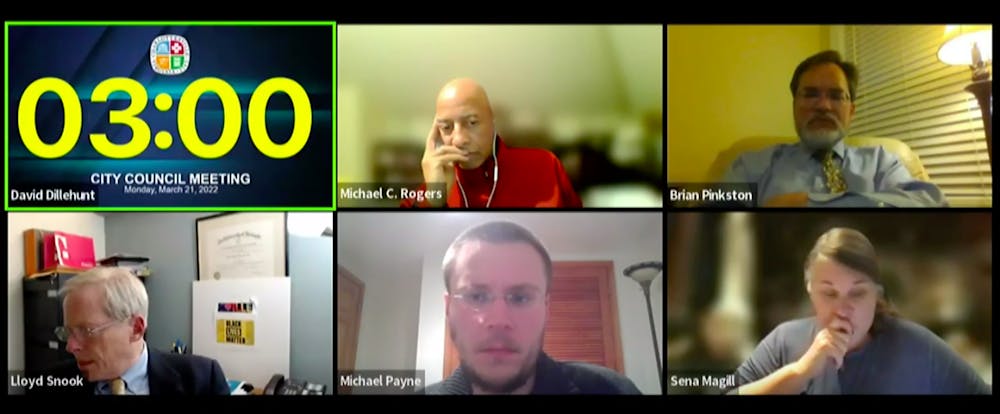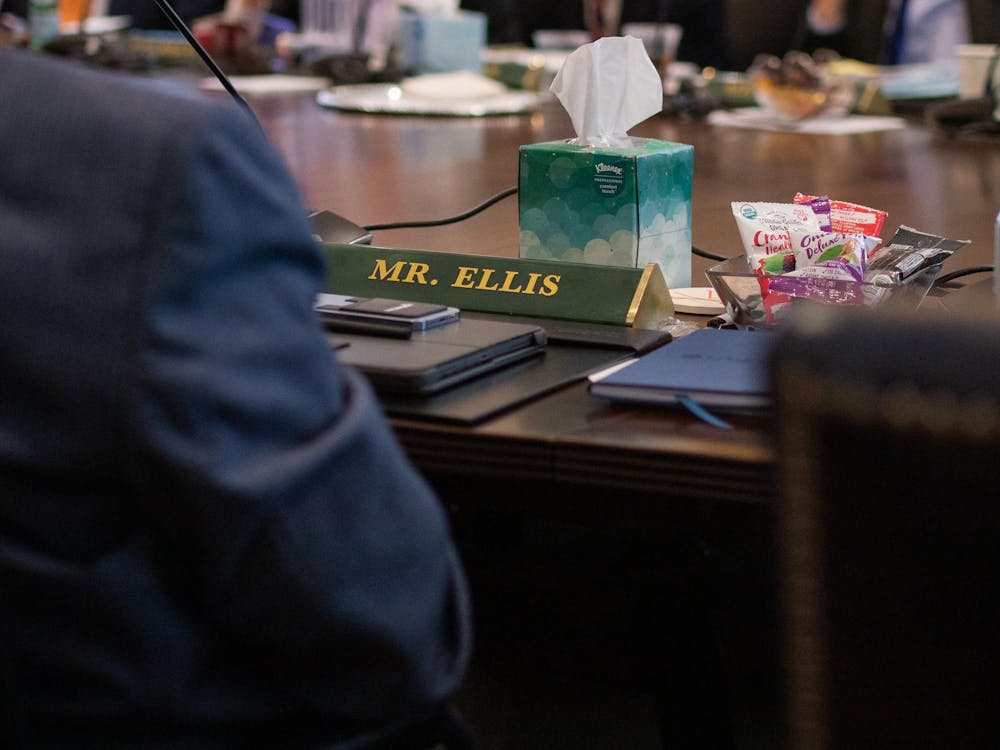Charlottesville City Council held a public hearing on a proposed increase to the City’s real estate tax rate and the proposed fiscal year 2023 budget during its meeting Monday night.
During public comment, local seventh grader Caja Edwards called in to tell Council about conditions at Buford Middle School — where Edwards attends — such as cramped classrooms and insufficient bathroom space. Edwards advocated for the school reconfiguration project, which would significantly renovate Buford Middle School to serve sixth through eighth graders and complete light renovations on Walker Upper Elementary School.
Currently, students in fifth and sixth grade attend Walker, but the project aims to incorporate sixth grade into Buford and bring fifth graders back into neighborhood elementary schools. Another part of the project is creating a consolidated preschool on Walker’s campus.
Interim City Manager Michael Rogers used the allotted City Manager Report time to describe several budget scenarios related to school reconfiguration.
Krisy Hammill, senior budget and management analyst, said that dedicating $75 million to school reconfiguration would require a subsequent eight cent increase in real estate taxes, which would take place incrementally over 4 years. A second scenario would institute a one-time seven cent tax increase and still provide the $75 million for school reconfiguration, Hammill said.
Hammill then addressed scenarios where $50 million would be dedicated to the school reconfiguration project, one in which a six cent real estate tax increase would be instituted over three years and a second in which residents would face a one-time increase of $0.0525 percent.
Finally, Hammill presented options allocating only $33 million to school reconfiguration, which would require either a tax increase of two cents over two years and one cent over the next year or a 4.25 cent one-time increase.
According to Hammill, each scenario assumes that the City will issue $15 million per year, which is an estimate that is subject to change.
After hearing the report from Hammill, Rogers recommended that the Council not take action on the school reconfiguration project this year but should instead begin setting aside funds, giving City staff time to create a five to ten year funding plan.
“For the FY 2023 budget, I recommend that council should enact a 2 cent real estate tax [increase] and set the money aside within the Capital Projects Fund, earmarked as the beginning of an annual funding program to generate funds for school reconfiguration,” Rogers said. “Let’s move forward, but not too fast — let’s take a pause and start putting away some money for this project.”
Council then heard public comment from members of the community, fielding a variety of calls on the City’s taxation rates. Resident Elizabeth Stark called in to the meeting to encourage Council members to provide funding for school reconfiguration and promote affordable housing by increasing the real estate tax rate. Resident Chris Meyer also voiced approval for the tax increase and said that Charlottesville is currently undertaxed compared to other similarly rated municipalities.
In addition to debates over taxation, residents also spoke on a lack of affordable housing throughout the City.
Kendall Dix, policy director for Gulf Coast Center for Law and Policy, called in to say that due to a lack of affordable housing in the City, his wife has been forced to commute 35 minutes each day.
“In order to make our area more liveable, equitable and sustainable, we must invest in affordable housing and public transportation while balancing the need for modern public schools,” Dix said.
Yet some residents, such as Jamie Fitzgerald, opposed the measure to raise the real estate tax. Fitzgerald said he was concerned about his ability to continue living in his rented home should the landlord increase rent to cover a tax increase.
According to Callahan Seltzer, a consultant with the City from HR&A Advisors, the City of Charlottesville has administered $46.7 million in funding towards different affordable housing initiatives, 47 percent of which went towards development and construction of new housing developments.
Seltzer said that the City should measure and publish their progress towards housing goals and expand the number of staffers working on affordable housing. According to Seltzer, there is simply not sufficient staff focused on housing to monitor the amount of funds going into affordable housing.
“It definitely demands some additional capacity — housing staff is small for a program of this scale and frankly, for [the] big bad housing problems that your city is facing and that cities of similar size are not necessarily facing,” Seltzer said.
Also included on the agenda for this meeting were two rezoning requests which, if approved, would create new units of affordable housing. Both will be discussed at next month’s meeting. Additionally, a second public hearing on the budget and tax increase is scheduled to take place on April 4th before the budget is officially approved April 12.







